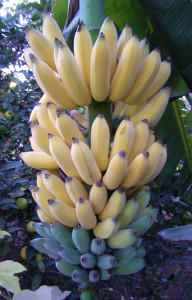Just when I thought is was safe to ignore quinoa for the rest of its international year, along comes Chris Smaje’s thoughtful piece The Great Quinoa Debate, or Why We Need Social Statisticians and Philosophers. The title riffs on Marc Bellemare’s Quinoa nonsense, or why the world still needs agricultural economists, and Smaje starts with a little whinge.
Perhaps quinoa is not, on the face of it, a very promising topic for an article on social statistics. … It does, in 2013, happen to be the International Year of Quinoa as well as being of course the International Year of Statistics, so at least that’s something in common. Another coincidence, regrettably, is the almost complete indifference of the general public to these important anniversaries, and their invisibility within the media.
I love that “of course”. And he’s right. While well informed about quinoa, I had no idea 2013 was also The International Year of Statistics, so kudos to Smaje for doing precisely what I tell clients to do: ride the news, such as it is. But what have statistics got to do with quinoa, or vice versa? Lots, as it happens.
Smaje points out that much of the debate around quinoa – eat it and you snatch food from the mouths of hungry Bolivians, don’t eat it and you condemn them to a life of want – is, shall we say, short on evidence. It can, and does, go either way, based on the same sets of “facts”. “[W]hich just goes to prove the old statistical adage that data is nothing without interpretation.”
Smaje moves on to interpret the data. He reminds us that, commenting on Marc Bellemare’s piece, “Sergio Nunez de Arco … provided an actual figure (mercy be!) to illuminate the debate, stating that average income per family farm in the quinoa growing areas of the Altiplano increased from $35 to $220 per month over the last five years.”
Setting aside the statistical stickler’s ecological fallacy – incomes went up in quinoa-growing areas, but not necessarily from increased prices at the farm gate – Smaje asks to what extent higher prices will indeed have the consequences forecast: Bolivians eating junk food; soil erosion; evil farmers in the North growing quinoa to undercut the global market; genetic erosion; collapse of Altiplano agriculture and culture. His answer is that we don’t know, and that we need experts of his ilk (social statisticians) if we are ever to find out.
The main normative argument that can be raised against the kind of position adopted by Blythman is the familiar one of who- are-we-westerners-to-bemoan-peasant-farmers-getting-in-on-a-cash-cow-and- trashing-their-environment-in-the-process-just-like-we’ve-done, which doesn’t seem a wholly unreasonable position. But it may be a pretty short-sighted one if we put together current environmentalist presentiments with what we already know about the cycles of economic boom and bust. Nobody can begrudge poor farmers cashing in, but if the result is just a microcosm for the wider malaise of contemporary agricultural economics – short-term economic gain at the expense of long-term economic and environmental pain, then perhaps some of we westerners are in fact well placed to pass judgment on the folly when we see others innocently embarking on the same misguided path we’ve trodden.
And the same goes for the argument that because incomes are higher, the “welfare” of the farmers has increased.
Even if it can be shown … that growing quinoa for western foodies increases the ‘welfare’ of poor Altiplano farmers in the rather technical and ahistorical sense [Bellemare] invokes from welfare economics, there are reasons to resist confounding the positive (can Altiplano farmers achieve financial gain from the current market for quinoa?) with the normative (financial gain equals, by definition, social benefit).
And the answer, as so often, seems to be that we need more research, and not just any old research either.
So perhaps the great quinoa debate suggests that we need social statisticians, because it’s worth gathering and analysing data about social practices such as farming in order to be able to answer the kind of questions that Bellemare poses and therefore to interrogate the often lazy claims of journalists, politicians and thinktanks in support of preconceived notions about social welfare. And it suggests we need philosophers (or at least thinkers) to pose deeper questions about social welfare than is provided by simplistic assumptions about market integration and economic benefit. We need a more nuanced understanding than current economic models typically provide about the benefits or otherwise of global market integration in the food system – and here I suspect that Joanna Blythman’s general line of argument, if not her specific analysis of quinoa economics, may prove fairly close to the mark.
And by one of those happy coincidences that statisticians are fond of puncturing as meaningless, next year is (among other things, I’m sure) the International Year of Family Farming. What better opportunity?
 My friend and former colleague Stephen Hazelman of the Secretariat of the Pacific Community (SPC) has been telling me about his new toy, a drier that an NGO in Samoa called Women in Business Development Inc. is using to process a local banana variety for export to New Zealand. You can see it on the left, thanks to Stephen. Drying overcomes the need for quarantine treatments in NZ. They harvest from certified organic farmers, ripen the fruits for 4-7 days, peel, soak in lime juice to stop blackening, then put in the drier for 15-20 hours, cool and pack in nice yellow 50g packages for export. They are also looking at teas, cinnamon, other fruits like pineapple and mangos, and also vegetables.
My friend and former colleague Stephen Hazelman of the Secretariat of the Pacific Community (SPC) has been telling me about his new toy, a drier that an NGO in Samoa called Women in Business Development Inc. is using to process a local banana variety for export to New Zealand. You can see it on the left, thanks to Stephen. Drying overcomes the need for quarantine treatments in NZ. They harvest from certified organic farmers, ripen the fruits for 4-7 days, peel, soak in lime juice to stop blackening, then put in the drier for 15-20 hours, cool and pack in nice yellow 50g packages for export. They are also looking at teas, cinnamon, other fruits like pineapple and mangos, and also vegetables. The variety involved is a small, sweet, high-altitude local type called Misi Luki. You can read all about its history and characteristics, and also see some pictures here. 1 It’s listed in ProMusa’s checklist of banana cultivars as an AAB type. If the banana were a neglected or underutilized species (NUS), Stephen could have reported on this under the “upgrading value chains” theme of the recent conference in Accra. But of course what works for weird and wonderful local landraces of the staples could also work for NUS. No news on whether Misi Luki is on any gourmet menus. But that’s another story…
The variety involved is a small, sweet, high-altitude local type called Misi Luki. You can read all about its history and characteristics, and also see some pictures here. 1 It’s listed in ProMusa’s checklist of banana cultivars as an AAB type. If the banana were a neglected or underutilized species (NUS), Stephen could have reported on this under the “upgrading value chains” theme of the recent conference in Accra. But of course what works for weird and wonderful local landraces of the staples could also work for NUS. No news on whether Misi Luki is on any gourmet menus. But that’s another story…